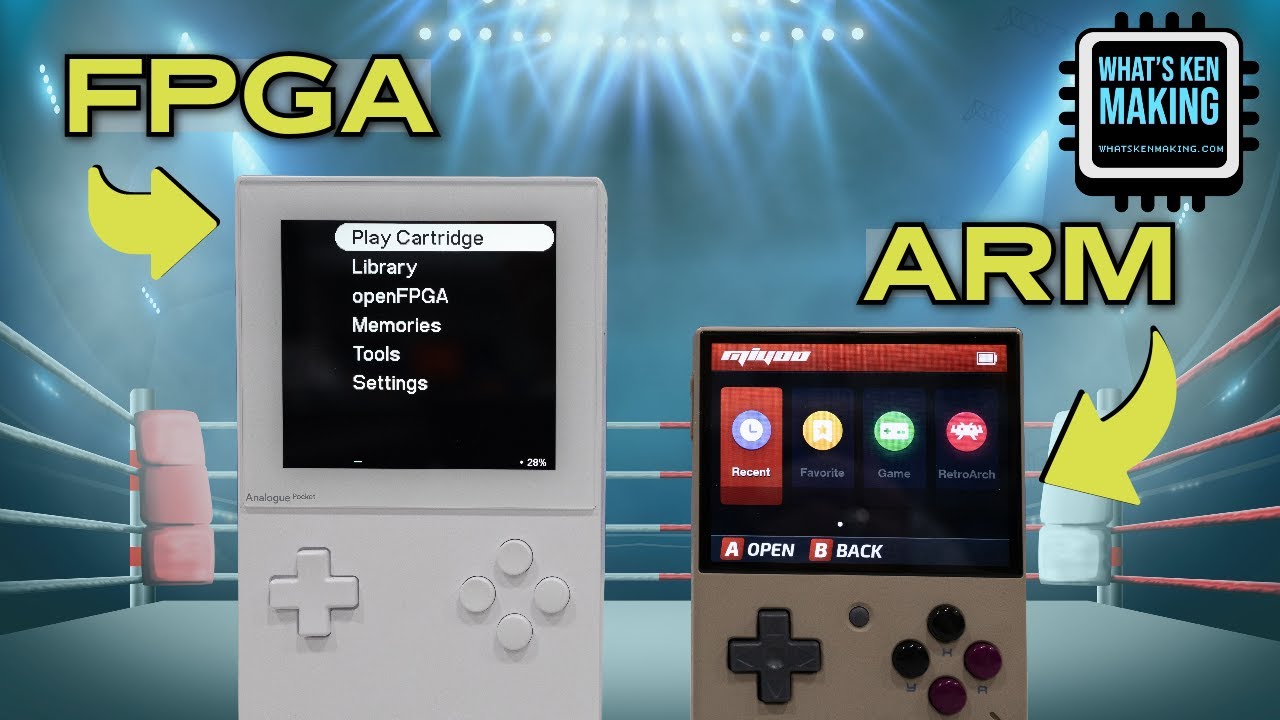- cross-posted to:
- pcgaming@lemmy.ml
- patientgamers@lemmy.ml
- gaming@lemmy.ml
- cross-posted to:
- pcgaming@lemmy.ml
- patientgamers@lemmy.ml
- gaming@lemmy.ml
Your thoughts?
I really liked the section of the video titled "CPU" 'cause it actually explained everything well and used sketch-noting or whatever you call it (I'm referring to the graphs here).
Software emulators: are free, run on everything from your PC, phone, your old PSP and probably twenty other things you have in your room right now, putting new life into old otherwise useless hardware FGPA: one-purpose landfill trash that consoomers buy because they can't imagine investing time in something that doesn't involve spending large amounts of money, getting dumb plastic shit to fill up your home
"FGPA: one-purpose"
Huh, I wonder what the P in FPGA stands for
Pretty sure they mean that most people won't have any use for an FPGA outside of this niche context, whereas just using software emulation on a general-purpose computer means you don't need a specialized gadget that can't really be repurposed when you get bored or whatever (whereas a general-purpose computer could be).
actual consoles are also landfill trash, except in that they get exclusive games that you can not get anywhere else, so as a consumer there's actually a reason to get one. unlike fpga consoles where every single game they could run also runs completely fine on any computer and you definitely already have one of those
An FPGA is the most recyclable part there is. Consoles usually have like 30 custom ICs that can only be used by that console because it was made by some mega-corp who special order things from the supplier. In contrast the FPGA on these things can br reused for pretty much anything else while all the other parts have to be off the shelf since most of the designs are open source.
If you think that even .5% of people who buy an FPGA console do any of these things you are kidding yourself. Happy new year
You can also reflash fpga and have it do way more things. These console emulator things are also significantly less locked down than a phone, a psp etc... It's easier to compile stuff for a 20 year old FPGA than a 20 year old CPU imo.
This was a great video. I'm sort of in this hobbyspace and currently own a Miyoo Mini(OG), RG351P, RG353VS, and an Arc-D. I also have around 100GB of roms(data hording much?) I used to do emulation on my computer years ago but about 2 years ago stumbled upon the handheld emulation world via /r/SBCgaming and it kind of blew my mind that companies were taking ARM processors and creating handhelds that can run stuff from Atari 2600 and TurboGrafix all the way to PSX and N64. If you are at all into retro gaming and wanna be able to couch game or game on the go, definitely look into maybe Anbernic for something affordable.
The chip explanation part of the video was great because even tho it's a hobby of mine, it's all still a lot of smoke and mirrors. I just assume that new systems need way more processing power, which is correct, but I never really took into account that a single ARM chip is doing the work of half a dozen components. And that does make sense.
I also see why the Analog is both so sought after and niche. Hardware emulation is cool as hell. I'll still stick to my software emulation but the whole concept behind it is really neat.




